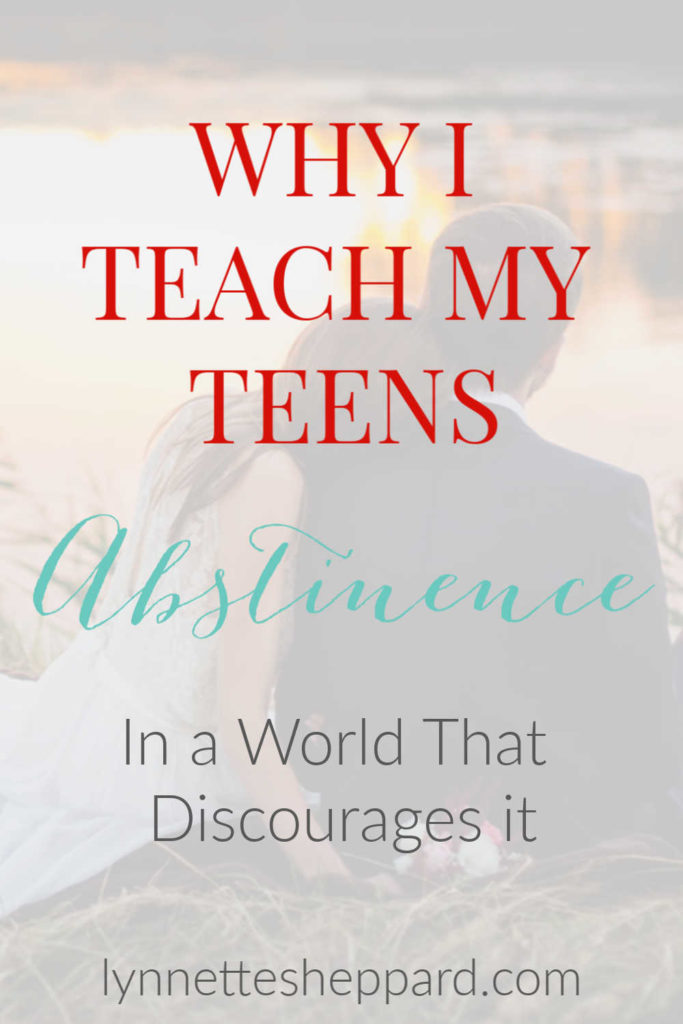
My youngest daughter just turned 11 years old. As part of her yearly physical, the doctor encouraged me to vaccinate her against HPV – a vaccine that has become fairly standard. Undecided about whether I wanted to immunize her against a sexually transmitted disease, I declined the vaccine for now. While he admitted that there was no particular rush, he also said that I should do it before she becomes sexually active.
“Hopefully, that will be a few years away,” he said, “but you never know.”
She is 11 years old, for crying out loud. She still sleeps with a bed full of stuffed animals and likes to sit on my lap from time to time. Hopefully, sexual activity is more than just a few years away for her. But I am supposed to prepare for the reality that it may happen at any time?
It becomes more apparent with each passing year that we live in an increasingly sexualized society. Thanks to the media, sex bleeds into nearly every aspect of life. It is marketed on the big screen, the Internet, magazines, billboards, books, and TV shows. Just in case that is not enough, it is also used to sell all sorts of products from hamburgers to perfume and everything in between.
The message is clear: everybody who is anybody is doing it.
It is no secret that abstinence is no longer in style. Casual sex is the norm, and many people expect teenagers and young adults to follow suit. How could they possibly resist when society feeds them a constant diet of glamorous sexual references?
But what about the consequences of such behavior? Too often, those are absent from the discussion, nonchalantly mentioned like an afterthought, or conveniently swept under the rug.
In 2013, the CDC reported that 47% of high school students surveyed admitted to having had sexual intercourse at least once, while 34% had had sex during the previous three months. With those numbers, it is not surprising that nearly half of the 20 million new STDs diagnosed each year belong to youth between the ages of 15 and 24, in addition to the 273,000 babies born to girls ages 15-19 in 2013 alone.
While there is a myriad of resources to educate teens about pregnancy, birth control, STDs and condom use, which are unarguably important, where is the dialogue about abstinence? Amidst all of the hype about sexual rights, where is the talk about the sanctity of sex? Where is the discussion about self-control? Are we above that?
No. We. Are. Not.
It cannot be disputed that teenagers are raging balls of hormones. They are interested in sex because that is how God designed them to be. Those strong and persistent feelings that begin in the teen years are natural and normal and God-given. They ultimately help to create and cement marriages and families. But they are meant to be kept within the bounds the Lord has set, and that requires a good deal of teaching and an abundance of self-control.
Society, however, tells us a different story.
If we listened to the media, we would believe that sex is recreation – something you do with someone you like, regardless of commitment or the lack thereof. We would believe that it is something you must try on for size with a variety of partners, just to make sure that you are sexually compatible before pledging yourself to one person. We would believe that sex is about self-gratification and is disconnected from responsibility.
But the truth is that you simply cannot separate the act of sex from its potential consequences.
I teach my kids the old-fashioned value of abstinence before marriage because, not only is it God’s plan, which is reason enough for me, but it will also provide them with safety and peace of mind if they choose to adopt it. Isn’t it interesting that following God’s laws coincides with safety and peace?
Those who live chaste and virtuous lives never have to worry about getting pregnant or fathering a child out of wedlock, or the steep path of life-changing decisions that scenario would inevitably create. They never have to worry about contracting or spreading an STD. They never have to worry about giving that special part of themselves to somebody whom they thought they had a future with before realizing that person lacked commitment, after all.
I teach my teens abstinence because it is a happy path of less worry and more freedom. I teach them that sex is a beautiful and important part of a healthy marriage, but experimenting with it outside of those bonds is dangerous because they are not free to choose the ramifications of such indulgence, regardless of whether or not it is “safe sex.” In my mind, sex is only truly safe when it is between a faithful husband and wife.

I teach my kids that they are perfectly capable of controlling themselves and waiting until their wedding night to give in to their passions, regardless of how strong their feelings may be. The notion that teens are slaves to their desires is ridiculous.
The ability to choose is one of the most fundamental parts of being human and young people are not exempt. It is, in fact, vital for them to understand that their choices, in large measure, will determine the outcome of their lives. So they had better choose wisely.
While recreational sex appears to be the way of the future, I refuse to sit idly by, expecting my kids to become sexually active while in their teen or young adult years because that is just what kids do these days. I refuse to believe that I am powerless to teach them the value of chastity in a world of shifting morality.
Societal norms do not dictate my parental decisions, so I will teach on, even though it sometimes feels like I am fighting an uphill battle to correct false paradigms and dangerous assumptions surrounding current sexual trends, and despite the reality that my kids may choose not to follow my counsel.
The world may not ever go back to the days when sex was sacred and largely saved for marriage. We may never again live in the safety of collective societal values such as abstinence, which is all the more reason for those of us who believe in such values to unashamedly teach them in our homes.
Call me crazy. Call me out of touch. Call me old-fashioned. That will certainly not change my mind, and I might even take it as a compliment.
I am convinced that those who grew up in the olden days understood a few truths that we modern folks have fooled ourselves into thinking are no longer relevant. The importance of chastity before marriage is one of them.
For one who does not buy into this progressive mentality, old-fashioned has never sounded so good.









Well said!
Thanks, Stephanie!
Wonderfully written!
Thank you, Kathy!
Yes. I am terrified of how to teach this to my daughter and future children.
It can be scary, for sure, but you are going to do great. Prayer helps a whole lot!
I couldn’t agree with you more. I’m not looking forward to my daughter starting school in 2017. Where we live, kids are smoking, doing drugs AND having sex. I’m not exaggerating either about them being kids. Some kids are having sex at 12. I know that we all have our own free agency, and children will still make their own decisions, despite what their parents say, but I feel like parents are not teaching their children about abstinence and the sanctity of procreation. It’s a real shame.
It IS scary to send kids to school with all of the temptations that they will surely encounter there. Chances are, they will not be learning good morals and values at school, which makes it VITAL to teach them at home. I have found that good communication with my kids is essential, especially as they get older. They tell me about what they hear and see at school, and we talk about why it may not be correct. As much as I sometimes want to shield them from all of the temptations that are especially prevalent in high school, this is the world that they are growing up in and it will not be getting any better. They must learn to navigate it safely while clinging to the values that they learn at home. Keep teaching!
There are a multitude of studies that have proven that religion and abstinence do not in any way correlate with decreasing the risk of pregnancy or STDs. Statistically, it actually leans more in the opposite direction.
This could be because sex before marriage is shamed, so kids don’t feel welcome to an open conversation about sex. Or maybe because too much emphasis has been placed on abstinence and not in practicing safe and responsible sex, and the tools for safe sex aren’t within arms’ reach.
Just because you have sex with multiple partners doesn’t mean you don’t care about any of them or don’t take it seriously. It COULD mean you enjoy physical intimacy with somebody you love.
While I have not read the studies of which you speak, I stand by my position, even though I understand that I am in the minority. I can tell you, however, that I do not teach my kids that sex is a shameful thing. I actually teach them that it is beautiful and worth waiting for.
Yes, so when they choose not to wait, they’ll be ashamed and won’t want to tell you because of how strongly you feel about it.
At the end of the day, all parents must raise their children in the way that they feel is best. There are undoubtedly others who agree with you, but I will continue to teach my kids what I believe is right, regardless of dissenting opinions. Thank you for taking the time to read my article, and have a wonderful day.
I am a Canadian-Muslim teen, and I wanted to let you know that I am truly grateful to God that I came across your blog. I found that your religion and mine share many views and like you, my faith also plays a huge role in my life. It really is difficult to be modest/not engage in sexual activity when things in our society are so highly sexualized, especially for teens.
I wanted to know if you could help me explain why modesty/abstinence are important without involving religion. I mean no disrespect. I too believe that God created limits for us and I do my best to stay within them however, I find it is difficult to explain to my peers who are not religious why these things are so important. It does not help if I talk about God with them.
Your advice would be greatly appreciated.
Thanks!